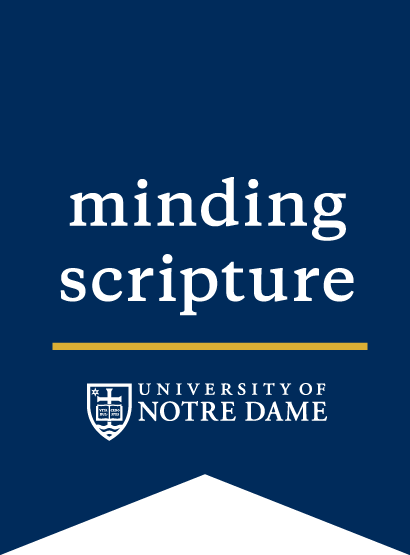Show Notes
In light of the global Coronavirus pandemic, this month’s episode of Minding scripture reflects on sickness, healing, and isolation in the Bible and in the Qur’an. What sources of hope do we find in the Abrahamic traditions in times of sickness and quarantine? How might these three traditions interpret the pandemic and the quarantine religiously?
First, our hosts ask, can sickness ever be an affliction from God? The Hebrew Bible does, in some passages, have God sending afflictions — upon the Egyptians, for example. But the Hebrew Bible also thinks of sickness in terms of human nature: falling ill is part of the human condition. It can be an occasion for remembering our general brokenness, and God’s role as the rescuer in whom one hopes precisely in danger. A Jewish response to the pandemic, Tzvi Novick suggests, would think less in terms of its “why” (“Is God the one doing this? Why would God do this?”) and more in terms of its “what:” What is this situation calling us to do, as a way of living out the guidance God provides in the Bible and the tradition?
For Christians, Jesus’ work of healing is central. In the Gospels, physical healings are at the heart of Jesus’ mission. Early Greek theology, and Orthodox Christianity today, call Jesus the pharmakos, the doctor. Jesus denies the widespread idea that people are sick because of their sins or their parents’ sins. The sickness of others is an occasion for recalling one’s need for repentance and healing. Jesus heals people by speaking, by being touched, by touching others, by making mud from his saliva and applying it to blind eyes. All these various various instances of healing emphasize that Jesus himself is the vaccine against death, the source of all healing, physical and spiritual.
The Qur’an, too, emphasizes God’s being the healer. Although Muslims generally believe that sickness and healing come from God, the Qur’anic story of Job, or Ayyub, is a paradigm for Muslims’ response to times of sickness. Ayyub remains patient and prays to God without attributing his sickness to God. Later Muslim scholars spoke of sickness in connection with righteousness; a person can attain mercy through remaining patient in sickness and entrusting him or herself to God.
Further Reading
- Freeman and Abrams, Illness and Health in the Jewish Tradition, The Jewish Publication Society, 1999.
- Fazlur Rahman, Health and Medicine in the Islamic Tradition: Change and Identity, Crossroad, 1987.
- Klaus Seybold and Ulrich B. Müller, Sickness and Healing, Abingdon Press, 1978.
- John Thomas, The Devil, Disease, and Deliverance, CPT Press, 2012.
- John Wilkinson, The Bible and Healing: A Medical and Theological Commentary, Eerdmans, 2000.
IMAGE CREDIT: Václav Mánes, Healing the Blind Man, 1832.
